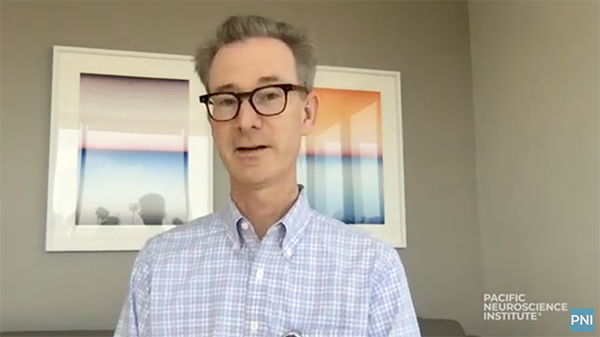Psychedelic-Assisted Treatment with Ketamine
The Pacific Treatment & Research In Psychedelics (TRIP) program is dedicated to the development of psychedelic-assisted therapies and the scientific exploration of how altered states of consciousness can be harnessed to change behavior and improve brain health and quality of life.
Behavioral health issues are a leading cause of disability and they remain inadequately treated worldwide. The modest effectiveness of existing treatments such as antidepressants and traditional psychotherapy approaches show us that there is an urgent need for more effective treatments for conditions such as depression, alcoholism, smoking cessation, and end of life suffering.
Early studies of psychedelic-assisted therapies for these conditions have demonstrated much larger and durable effects compared to existing therapies suggesting that there is great potential for psychedelic-assisted treatments to revolutionize the treatment of mental health and behavioral disorders.
Explore this new treatment by requesting more information!

Contact Us
For Major Depression, Post-Traumatic Stress Disorder (PTSD), Anxiety disorders, End-of-life existential crisis, Palliative care for disease, Drug use disorders, Alcohol use disorders, Chronic pain. Call 310-878-2335 or fill out the form below for more information.
Ketamine Therapy at PNI
Ketamine is approved for use at high doses as an anesthetic in the operating room. Although not FDA-approved, lower dose “sub-anesthetic” ketamine injections are used “off-label” to treat depression, pain, and other mental health/substance use disorders.
Our program includes one or a few in-clinic ketamine dosing sessions under clinician supervision integrated with preparatory and integration counseling. By harnessing the potential psychedelic effects of ketamine we aim to achieve more sustained results with fewer ketamine treatments compared to IV ketamine infusions without accompanying psychotherapy.
What to Expect
- Psychedelic-assisted therapy involves administering a psychedelic drug to a patient under clinical supervision to trigger an altered state of consciousness or mystical experience.
- This model can be used with a variety of psychedelic medications including psilocybin (“magic mushrooms”), MDMA, LSD, and ketamine. At the TRIP Program, patients may receive psychedelic-assisted therapy via our Ketamine Treatment Program or by enrolling in a clinical trial.
- The psychedelic experience is influenced not only by the choice of drug, but also by the set (the patient’s mindset entering the experience) and the setting (the environment and surroundings). In psychedelic-assisted therapy, the drug is given within the context of a “set and setting” psychotherapy program. A physician monitors the patient for safety.
Conditions We Treat
We treat people 16 years and older who are treatment-resistant or who wish to effectively tackle deep-rooted, unresolved trauma that has not been adequately addressed by other treatment options.
- Major Depression
- Post-Traumatic Stress Disorder (PTSD)
- Anxiety disorders
- End-of-life existential crisis
- Palliative care for disease
- Drug use disorders
- Alcohol use disorders
- Chronic pain
Psychedelic-Assisted Therapy Frequently Asked Questions
Is psychedelic-assisted therapy FDA-approved?
No psychedelic-assisted therapy is FDA-approved although clinical trials with psilocybin (from “magic mushrooms”) and MDMA are underway. Ketamine is FDA-approved as an anesthetic but can be used “off-label” in psychedelic-assisted therapy outside of clinical trials.
What conditions can be treated with psychedelic-assisted therapy?
Based on prior studies dating back to the 1950’s and more recent clinical trials, patients with depression, anxiety, PTSD, end-of-life distress, chronic pain, and/or drug or alcohol problems may be candidates for psychedelic-assisted therapy.
How is psychedelic-assisted therapy different than taking a psychedelic drug?
Psychedelic-assisted therapy is under a doctor’s supervision, includes counseling and clinical support before, during, and after the psychedelic dosing session, and the medication is part of an integrated program of psychotherapy and self-exploration as opposed to providing the drug as an isolated treatment. Taking a psychedelic drug outside of medical treatment or a clinical trial is in most cases illegal and not something we can recommend or assist with.
What if I have a “bad trip” during my psychedelic-assisted therapy?
The goal of psychedelic-assisted therapy is to facilitate accessing deep emotional issues such that they can be addressed in subsequent integration counseling sessions. The psychedelic treatment may bring up anxiety, fear, or difficult or challenging emotions or memories which is why we will be at your side to assist and support you before, during, and after the psychedelic session.
Research suggests that the intensity of the psychedelic experience is one of the best predictors of a therapeutic response, even when the experience is difficult or challenging. Therefore we do not consider a difficult session to be a “bad trip” but instead focus on supporting you and assisting you in maximizing the benefit you can obtain from the experience whether it is pleasant, challenging, or both.
What are some possible side effects of psychedelic-assisted therapy?
Blood pressure and heart rate typically increase during the dosing session and there is a risk of cardiovascular compilations especially in patients with cardiac disease. There is a very small risk of developing persistent perceptual disturbances or hallucinations after the psychedelic dosing session although this risk seems to be less than with recreational or non-medical psychedelic use.
There is a small risk of abuse or addiction to psychedelic drugs which is why psychedelic-assisted therapy involves a limited number of dosing sessions at the clinic under medical supervision followed by counseling and clinical monitoring. Like all therapies, there is a chance that psychedelic-assisted therapy will not work for your condition.
Is psychedelic-assisted therapy “microdosing?”
“Microdosing” psychedelics involves taking sub-psychedelic doses of a psychedelic on a regular schedule (e.g every 3 days) often chronically. Microdosing of psychedelics is purported to have beneficial effects on mood and cognitive performance but few controlled studies of microdosing have been done to date. In contrast, most clinical trials of psychedelic-assisted therapy use a full psychedelic dose, usually administered once or only a few times over several months.
Is psychedelic-assisted therapy covered by insurance?
Counseling and/or doctor visits before and after the psychedelic dosing sessions typically involve standard care and may be billable to insurance. The ketamine psychedelic dosing session, which involves several hours of treatment and monitoring under medical supervision at the clinic, is not currently billable to insurance and out-of-pocket cost is approximately $1,200 per session. Some costs for patients in clinical trials may be paid for by the sponsor.
Our Physicians
Our multi-specialty team of experts ensure a safe experience around psychedelic-assisted therapy.





